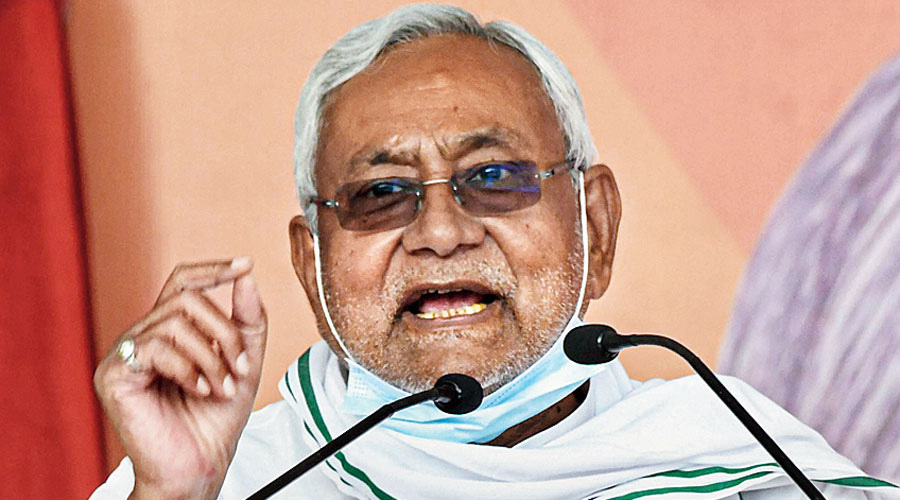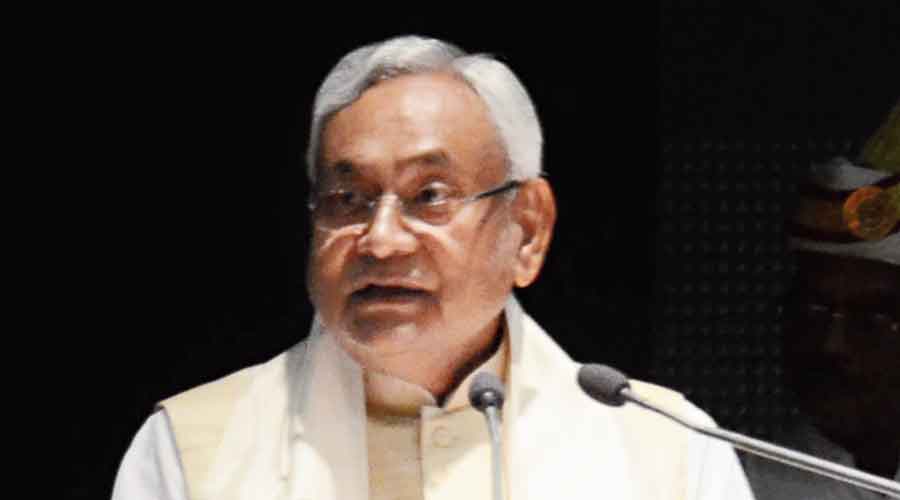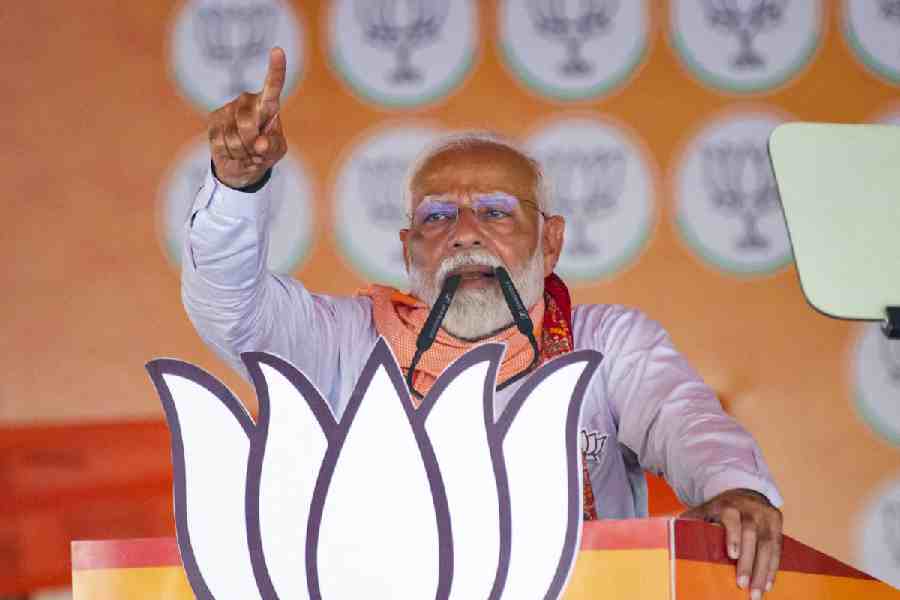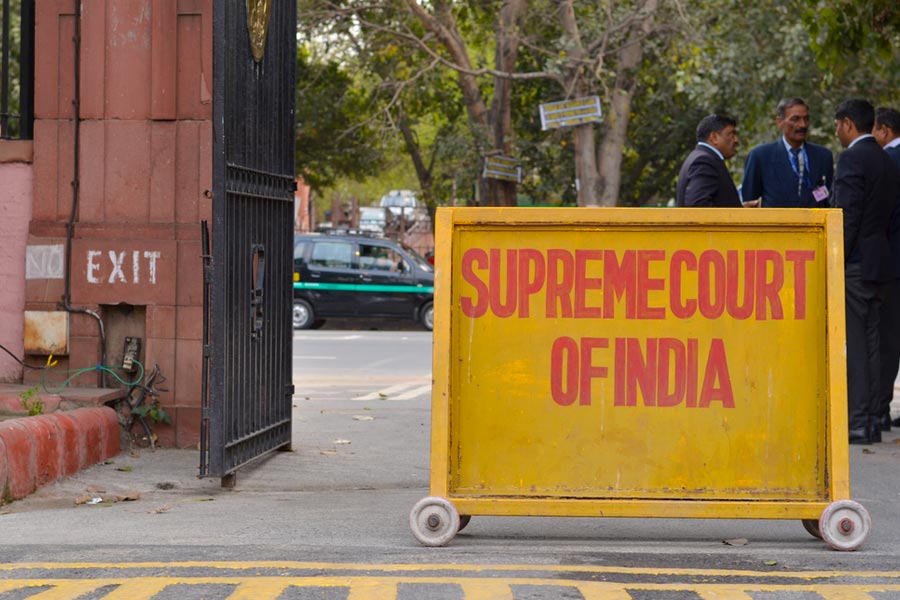Chief minister Nitish Kumar has announced the revival of bazaar samitis in Bihar, a U-turn in policy that is likely to be resented by ally BJP and welcomed by the farmers agitating in several states against three new farm laws.
One of the three laws does away with the need for bazaar samitis — called mandis in some places — a provision the farmers fear will leave them to be exploited by big companies that buy farm produce.
Bazaar samitis are government-regulated markets where farmers sell their produce to middlemen with the government expected to ensure they are not exploited. These markets had shut down after the Nitish government repealed the Agriculture Produce Marketing Committee Act in 2006, deciding that reining in the middlemen was a hopeless task.
However, some of the middlemen retained their stalls at the erstwhile bazaar samitis and many farmers continued to sell there, but without government infrastructure or supervision.
“Agriculture bazaar samitis will be revived, renovated and developed in a phased manner in the state to provide a market to the farmers for their produce,” Nitish said in an Independence Day announcement.
“We shall spend Rs 2,700 crore on this. Separate market and cold storage facilities will be provided at the bazaar samitis for food grains, fruits, vegetables and fish.”
Farmers are agitating in Punjab, Haryana, Rajasthan, Uttar Pradesh, Madhya Pradesh, Maharashtra, Gujarat and a few other states apart from conducting a nine-month-old sit-in at Delhi’s borders. One of their demands is an assurance that mandis will continue to function.
Nitish’s announcement comes amid a continuing strain in relations between his Janata Dal United and the BJP since the October-November Assembly elections last year.
The JDU with 43 seats has to play second fiddle to the BJP, which won 74 seats. Nitish’s lieutenants have indicated they believe that the BJP sabotaged their party’s electoral prospects through various ploys, including covert support to erstwhile ally Chirag Paswan who fielded Lok Janshakti Party candidates against the JDU.
The JDU has differed from the BJP on several issues recently, demanding a caste census and a probe into the Pegasus snooping allegations and opposing the new citizenship regime, two-child norms for elections, the amendment to Article 370 and talk about a uniform civil code.
In his Independence Day speech, Nitish announced that all villages in Bihar would be covered by milk cooperative societies, with women managing 40 per cent of the new societies that would be created.
Nitish said his government would ensure that the state-run Sudha Dairy’s products, now available only in the cities, are marketed at all the towns and block headquarters over the next four years. He said the state would expand the facilities to produce ethanol from sugarcane, molasses and maize. He also announced the establishment of three new colleges to teach agricultural biotechnology, agricultural engineering and agri-business management under the Bihar Agriculture University at Sabour, Bhagalpur.
Bihar will also have an eco-tourism wing under the department of environment and forests.
Nitish announced an increase in the dearness allowance from 17 per cent to 28 per cent with effect from July 1 this year. The Centre had recently hiked dearness allowance for its employees.











